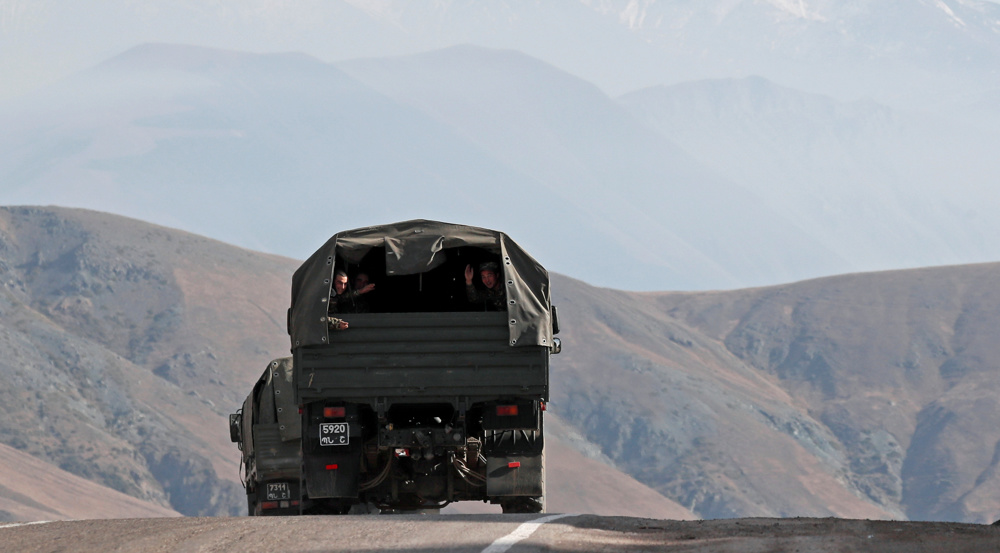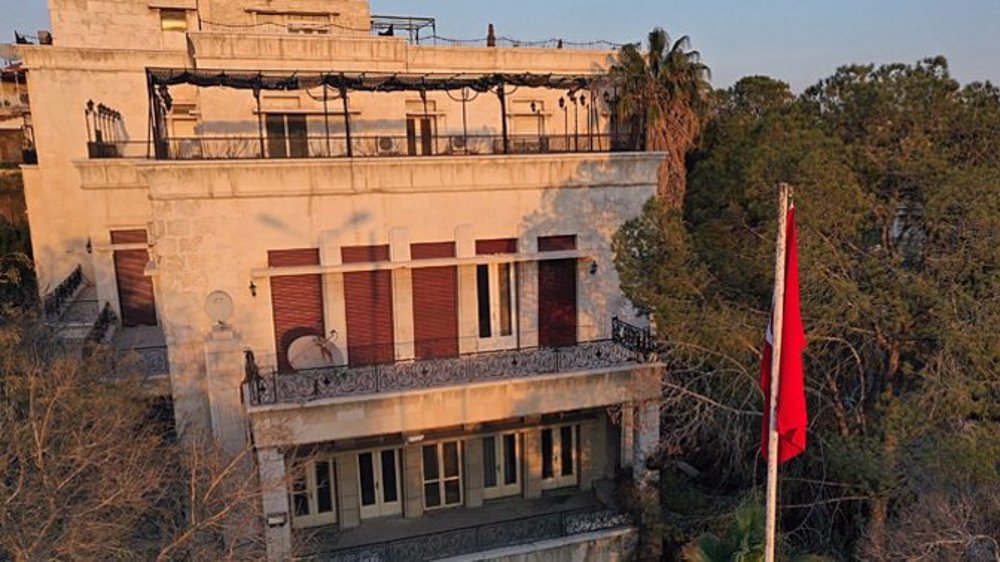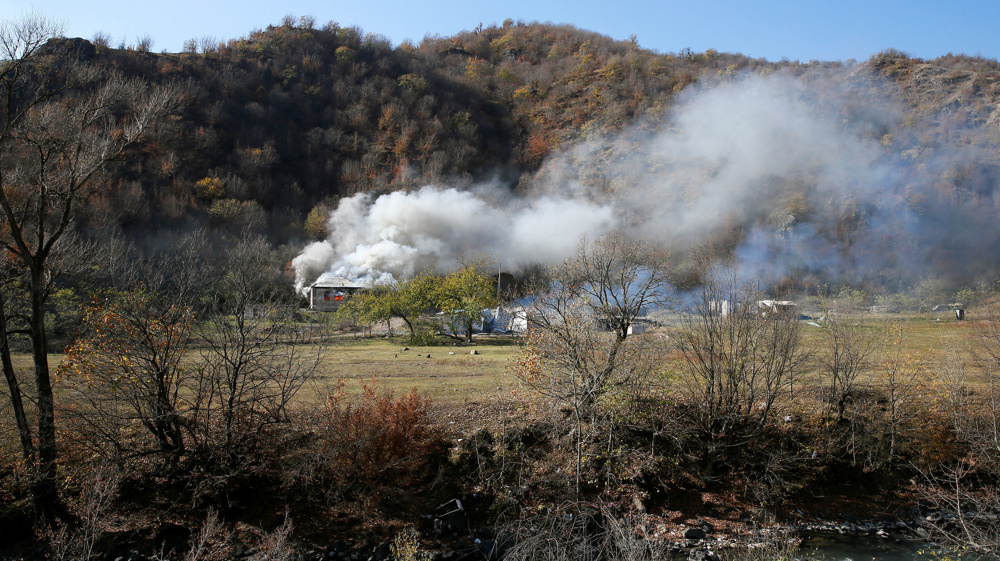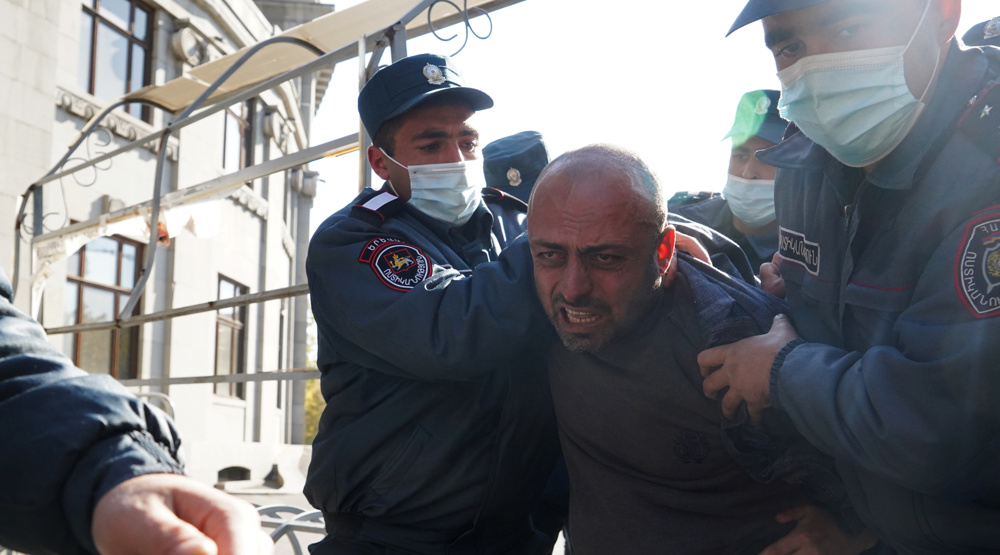Turkey to send peacekeeping troops to Azerbaijan to monitor Karabakh truce
Turkish President Recep Tayyip Erdogan has asked for parliamentary authorization for the deployment of peacekeeping troops to Azerbaijan, in the wake of an agreement with Russia to jointly monitor a ceasefire that has brought weeks of fierce fighting to an end in Nagorno-Karabakh.
The president’s office sent a request to the parliament on Monday for the deployment of a mission to "establish a joint center with Russia and to carry out the center’s activities.”
The parliament is expected to consider this issue in the next few days, according to Turkish news agency Anadolu.
The request followed two days of talks in the Turkish capital Ankara with Russian officials about how the two states intend to jointly implement the Russian-brokered ceasefire signed last week.
The deployment, which would be active for one year, "will be for the benefit and welfare of the people in the region," the motion said.
Russia, an ally to Armenia, will also be sending 1,960 peacekeepers as well as armored personnel carriers and other military equipment to monitor the truce deal. The deployment has already got underway.
The Russian-brokered ceasefire states that a "peacekeeping center is being deployed to control the ceasefire" but does not specify its formal role.
The center, according to the agreement, is located on Azerbaijani territory.
Reacting to the news of Turkey seeking to deploy troops to Azerbaijan, Kremlin spokesman Dmitry Peskov said Monday, "As for the agreements to create a joint monitoring center on the Azerbaijani territory, this is a result of the Russian-Turkish bilateral arrangement."
The comments appeared to reflect a shift in tone from Peskov's remarks last week when he said there had been "no discussion of joint peacekeeping forces" and that the recent joint statement by Russia, Armenia, and Azerbaijan made no mention of Turkey in any manner.
Karabakh is internationally recognized as part of Azerbaijan, but it has been held by ethnic Armenian separatists backed by Armenia since 1992, when they broke from Azerbaijan in a war that killed some 30,000 people.
The latest fighting, the worst in decades, started in late September and came to an end last week after Moscow brokered the ceasefire that leaves Baku largely in control of the territory.
The deal has provoked anger in Armenia, resulting in protests and demands from the opposition for Prime Minister Nikol Pashinyan to step down.
In his latest remarks about the truce deal, Pashinyan admitted responsibility for the events in Karabakh, and called for a dialog between the people, the military, and the government for a full understanding of the situation.
"I am the top official who bears responsibility for what happened. There can be no discrepancy on this. I understand that I should face the trial of our people. However, in this case the judge — the people — should be aware of all the circumstances, we need dialog with the military, the opposition, and the government", Pashinyan told an online press conference.
Pashinyan has made it clear that he has no intention to resign following failures in the Nagorno-Karabakh conflict.
But the opposition seems to be uncompromising on the issue.
"Pashinyan has declined all our public calls and proposals for meetings. Prosperous Armenia has this to say: a meeting with Pashinyan can only take place if it is to discuss his resignation without any unrest," Opposition party Prosperous Armenia said Monday on Facebook.
Under the new deal, Armenia has roughly until the end of November to return Kalbajar, the Aghdam district and the Lachin district to Azerbaijan.
Armenia was to begin handing over disputed territories to Azerbaijan on Sunday.
Iran: US airstrikes on Yemen war crimes, violation of international law
Yemeni armed forces down F-18 fighter jet, repel US-UK attack: Spokesman
Iran warns against US-Israeli plot to weaken Muslims, dominate region
VIDEO | Public uproar in US against Israeli regime
‘Ghost town’: 70% of Jabalia buildings destroyed by Israel
Mother’s Day: Sareh Javanmardi’s inspiring journey as Paralympic champion and mother
Russia downs over 40 Ukrainian drones as Putin vows 'destruction' on Kiev
VIDEO | Yemen: A bone in Israeli neck















 This makes it easy to access the Press TV website
This makes it easy to access the Press TV website